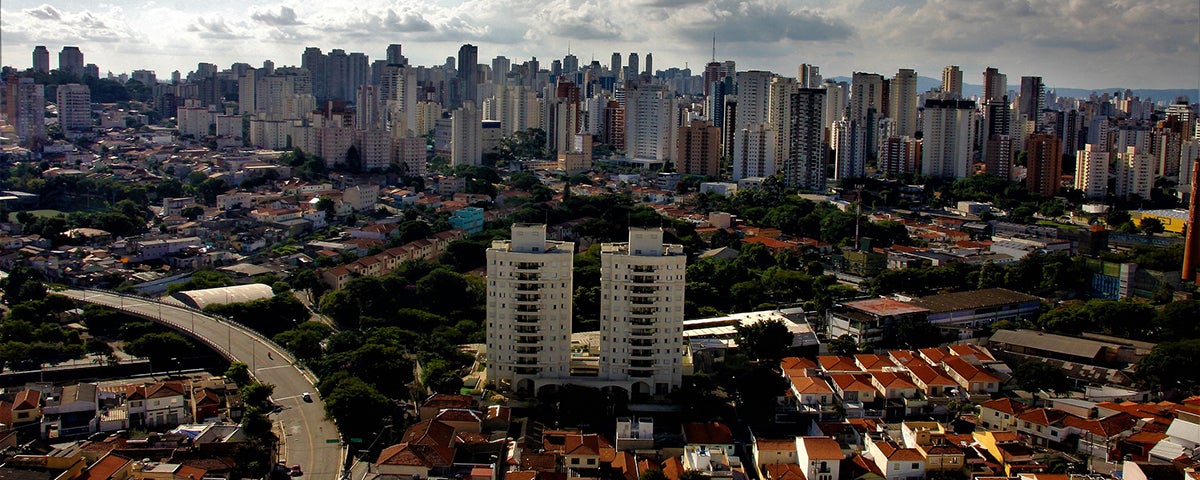
São Paulo is not only Brazil’s economic engine and financial centre but also the most populous state in the country, with around 44 million inhabitants in big cities, like the state capital of São Paulo, which has faced water security challenges in recent years. These severe water scarcity conditions impact all aspects of life, including human and environmental health. In an effort to identify new, innovative water management approaches that increase water security in both the urban and rural areas in the state of São Paulo, the Water Institute is collaborating with several Brazilian partners on a new five-year, US$1.2M project entitled “SACRE: Integrated water solutions for resilient cities” funded by the São Paulo Research Foundation (FAPESP).
Led by the Groundwater Research Center (CEPAS|USP) / Institute of Geosciences - University of São Paulo, the project will bring together extensive expertise in a variety of domains and disciplines from 12 partner institutions and government agencies, including the recently established State of São Paulo’s Environmental Researches Institute (consisting among others of the former Geological Institute and Forestry Institute of São Paulo), the São Paulo Secretariat for Infrastructure and Environment and Hiroshima and Okayama Universities in Japan to name a few.
Key contributors from the Water Institute include Roy Brouwer, Executive Director of the Water Institute and Professor in the Department of Economics, Phillipe Van Cappellen, Professor and Canada Excellence Research Chair Laureate in Ecohydrology, David Rudolph and Ramon Aravena, Professors in the Department of Earth and Environmental Sciences, and Neil Thomson, Professor in the Department of Civil and Environmental Engineering.
The project is the result of a longer-term collaboration between the Water Institute, the Institute of Geosciences at University of São Paulo and the former Geological Institute in São Paulo. Brouwer, Van Cappellen, Rudolph and Thomson visited São Paulo several times over the past years to strengthen the collaboration and prepare the proposal, with the financial support of the University of Waterloo as part of the SPRINT program and the invaluable assistance of the Consulate General of Canada in São Paulo, in particular the Consulate’s Clean Tech Trade Commissioner. The collaboration continued online over the past year and a half during the pandemic.
“This new project provides the opportunity for us to continue the longstanding, international cooperation we have at University of São Paulo with the Water Institute at the University of Waterloo to make a real impact in addressing São Paulo’s water security challenges” said Principal Investigator Ricardo Hirata, Professor in the Institute of Geosciences, and Director of CEPAS|USP, University of São Paulo.
The SACRE project will use the Brazilian Bauru-Batalha rivers as a pilot study watershed to develop cutting-edge interdisciplinary scientific knowledge in hydrogeology, water resources engineering, economics, and governance. Most of the funding will be used to train students and other highly qualified personnel and build institutional capacity.
“The Water Institute is delighted to strengthen its collaboration with our Brazilian partners in training a new generation of water managers to embrace innovative, interdisciplinary approaches to improve the capacity and resilience of water systems in this water-stressed region” said Roy Brouwer, Executive Director of the Water Institute.
Unique in the project is the collaboration between scientists and government agencies responsible for the management of the land and water in the watersheds feeding urban and rural areas in São Paulo. The São Paulo Secretariat for Infrastructure and Environment supported the development of the project since the start and has been actively involved. The project will search for combinations of conventional and unconventional, nature-based policy strategies and develop cost-effective, long-lasting, innovative solutions that contribute to the Sustainable Development Goals for the State as a whole. Besides the creation of a blueprint for policymakers to improve water security, the project will build a strong institutional network of collaborators (universities, research centres and institutes and government departments) beyond the project's period.
“Besides the great advances to water science and environmental management, the project will develop concrete benefits to the management of water and natural resources in the cities and the rural areas of the State. With important financial support from FAPESP, under the coordination of the University of Sao Paulo, together with other universities and SIMA scientists and technicians, consolidating the links between policy and practice, the partnership with the University of Waterloo’s Water Institute represents a huge potential for cooperation with the Canadian Government and researchers - getting ready for new challenges” said Marcos Penido, State Secretary of the São Paulo Secretariat for Infrastructure and Environment.
“The Trade Commissioner Service is happy to see this new technical cooperation between the University of Waterloo and several actors in São Paulo State on this crucial topic. This dedication and work between the Water Institute, the São Paulo State Government and all contributors is to be praised.” -Monica McDonough Fortino, Clean Tech Trade Commissioner, Consulate General of Canada in São Paulo
The Water Institute is delighted with the project announcement and looks forward to collaborating with its international partners to make a real impact on the complex issue of water scarcity and vulnerability in water-stressed regions around the world. Agreements are being drawn up to organize the exchange of faculty members and students across the two countries in the years to come.
Photo: São Paulo city image by Luciano Teixeira from Pixabay